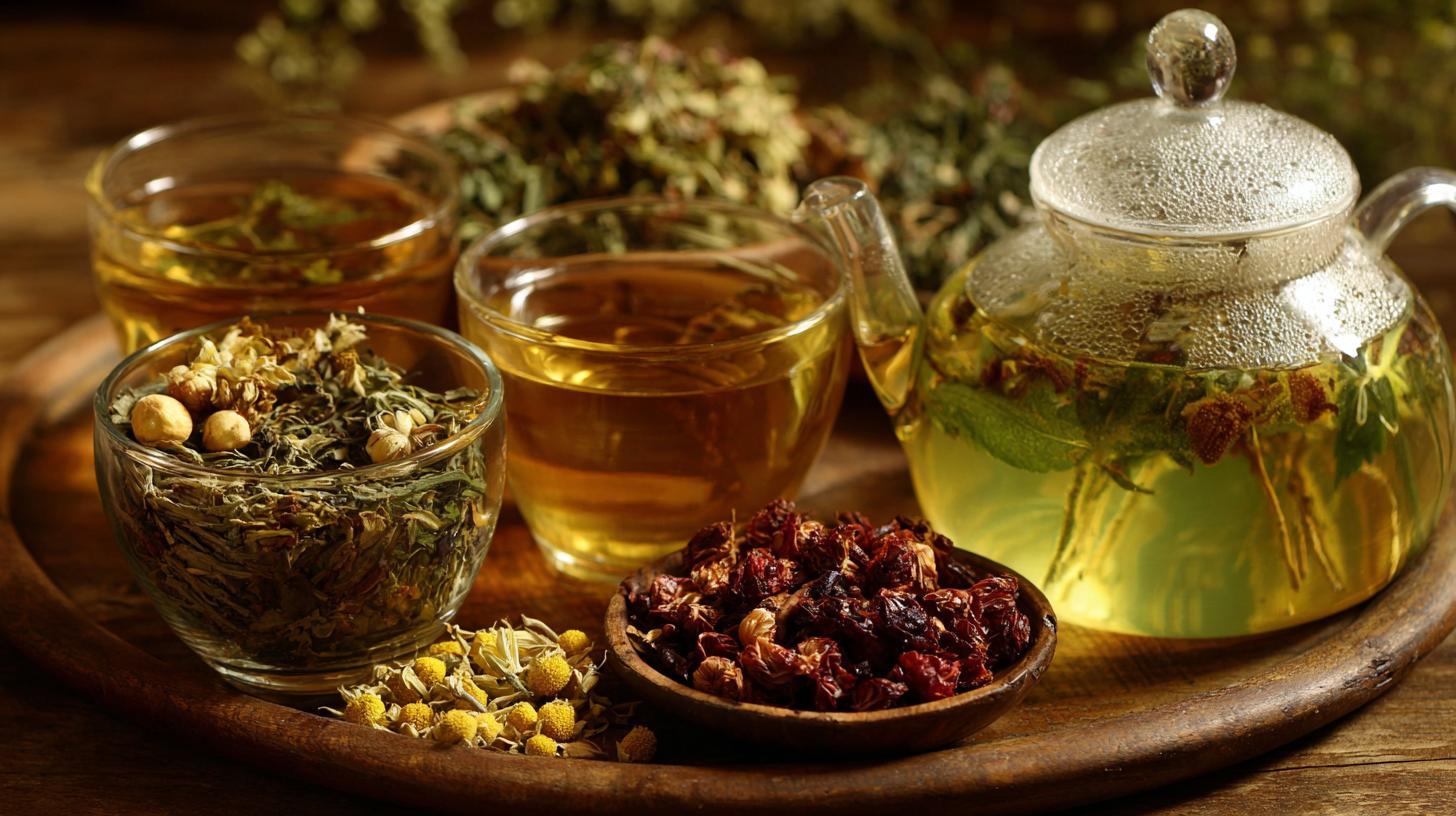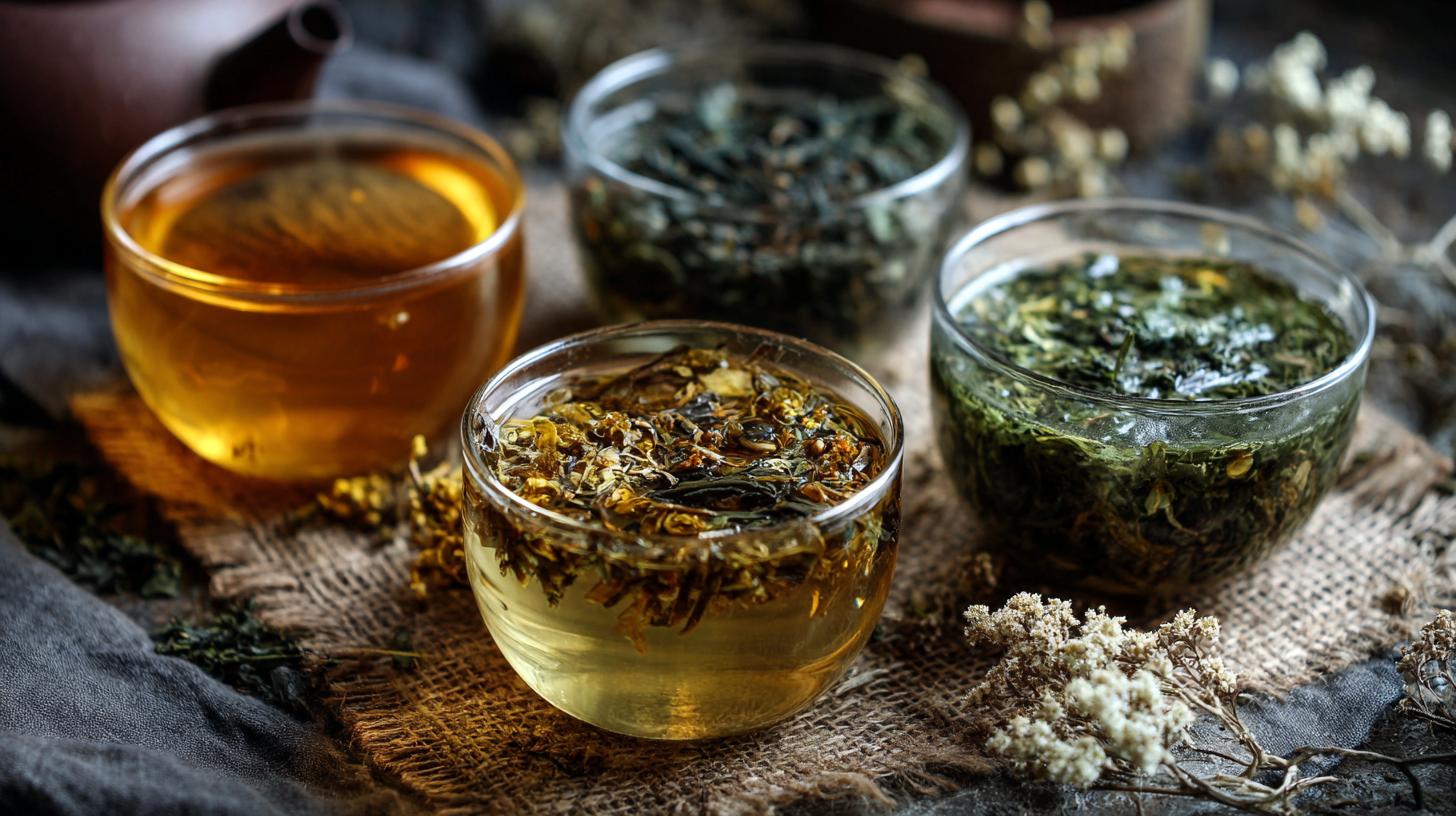Herbal teas have been an integral part of many cultures around the world, cherished not only for their comforting flavors but also for their therapeutic benefits. In the country of Georgia, with its rich history and deep connection to nature, herbal teas hold a special place, especially when it comes to supporting digestive health. Brewing Georgian herbal teas for digestive health is a practice rooted in tradition, carefully combining local herbs known for their soothing and restorative properties. In this article, we will explore the art of brewing these teas, the specific herbs used, their benefits, and the best techniques to prepare them effectively.
The Historical Context of Georgian Herbal Teas
Georgia, located at the crossroads of Europe and Asia, boasts a diverse natural landscape abundant in wild herbs, flowers, and plants. The people of Georgia have long turned to these natural resources to maintain health, harnessing the power of herbs grown in the country’s unique climate. Herbal teas, commonly known locally as “chakapuli” when referring to a stew and otherwise “tsamli” or “chai,” have been used for centuries not just as a refreshing beverage but as remedies for various ailments.
Specifically for digestive health, Georgians have traditionally used certain herbs to ease digestion, reduce bloating, calm stomach discomfort, and stimulate appetite. These herbal blends are often consumed after meals or during times of digestive upset, meaning the practice of brewing Georgian herbal teas for digestive health is both practical and culturally significant.
Key Georgian Herbs Used in Herbal Teas for Digestive Health
Understanding the herbs plays a crucial role in appreciating the teas and their effects. Here are some of the most commonly used Georgian herbs aimed at supporting digestive health:
| Herb | Local Georgian Name | Digestive Benefits | Flavor Profile |
|---|---|---|---|
| Chamomile | მაკი (Maki) | Soothes stomach cramps, reduces gas, and promotes relaxation of the digestive tract | Sweet, floral, and slightly apple-like |
| Mint | მენტა (Menta) | Stimulates bile flow, eases indigestion, and relieves nausea | Fresh, cooling, and slightly sweet |
| Stinging Nettle | ბოტკა (Botka) | Supports detoxification and reduces inflammation in the digestive system | Earthy and herbal |
| Fennel | მშანმო (Mshamo) | Reduces bloating, relieves gas, and improves digestion | Sweet, anise-like, and warm |
| Linden Flowers | ლინდები (Lindebi) | Calms the digestive tract and relieves spasms | Delicate, floral, and slightly citrusy |
| Thyme | ტიმიანი (Timiani) | Antimicrobial, supports healthy gut flora, and eases digestive discomfort | Earthy, minty, with a hint of lemon |
Why Focus on Digestive Health?
Digestive health is fundamental to overall well-being. When digestion functions properly, our bodies efficiently absorb nutrients, eliminate waste, and maintain a balanced internal environment. However, digestive issues like bloating, indigestion, and cramping are common worldwide, often caused by diet, lifestyle, or stress. Herbal teas offer an accessible, natural way to support the digestive system without the side effects sometimes associated with pharmaceuticals.
Georgian herbal teas combine multiple herbs creating a synergistic effect. The mild anti-inflammatory, spasmolytic, and carminative properties found in these herbs gently assist digestion. They also work to ease discomfort and contribute to the long-term health of the digestive tract, making brewing Georgian herbal teas for digestive health a valuable ritual.
Essential Tools and Preparation Tips
Before diving into the brewing process, it’s good to familiarize yourself with the tools and techniques needed. The beauty of Georgian herbal tea brewing lies in its simplicity, but a few items improve the experience and effectiveness:
- Quality dried herbs: Use fresh or properly dried herbs from a trusted source or foraged if you are knowledgeable about identification.
- Teapot or small saucepan: Clay or ceramic teapots are traditional and beneficial because they retain heat evenly. Steel or glass works well too.
- Strainer or tea infuser: To keep the herbs separated after steeping for easy pouring.
- Fresh water: Use filtered or spring water to avoid unwanted tastes and contaminants.
- Timer or clock: Monitoring steeping time is important to get the ideal flavor and extract benefits.
Additionally, understanding water temperature is key. Most herbal teas brew best with water just off the boil (around 95–100°C or 203–212°F). Overheating can sometimes reduce the delicate flavors or cause unwanted bitterness.
Step-by-Step Guide to Brewing Georgian Herbal Teas for Digestive Health
With the herbs selected and tools at hand, follow this careful approach to brewing:
- Measure the herbs: Typically, use 1 to 2 teaspoons of dried herbs per cup (about 250 ml) of water. When combining herbs, balance flavors; for example, one teaspoon chamomile, half a teaspoon mint, and half a teaspoon fennel.
- Prepare the water: Bring fresh water to a boil and let it cool just for a minute if your herbs benefit from slightly lower temperatures (for example, some delicate flowers).
- Add herbs to teapot or infuser: Place the measured herbs into your teapot or tea infuser.
- Pour water over herbs: Slowly pour hot water over the herbs to allow proper extraction.
- Steep: Cover and let the herbs steep for 5 to 10 minutes. Some combinations, such as fennel-heavy blends, may benefit from longer steep times.
- Strain and serve: Remove herbs by straining or lifting the infuser. Pour the tea into your favorite cup.
- Optional additions: Lightly sweeten with honey or add a slice of lemon for extra flavor and digestive support.
Popular Georgian Herbal Tea Recipes for Digestive Health
To get you started, here are three examples of traditional Georgian herbal blends focused on digestive wellness. These recipes blend multiple herbs to achieve a balanced taste and therapeutic effect.
| Recipe Name | Ingredients | Preparation Method | Notes |
|---|---|---|---|
| Chamomile-Mint Blend |
|
Steep herbs in 250 ml hot water for 7 minutes. Strain and serve warm. |
Great to soothe stomach discomfort after meals. |
| Digestive Harmony Mix |
|
Steep in 300 ml hot water for 10 minutes. Strain and enjoy, optionally with honey. |
Supports digestion and reduces inflammatory symptoms. |
| Calming Linden Tea |
|
Steep 3 to 5 minutes in 250 ml hot water. Strain and drink warm. |
Helps alleviate digestive spasms and stress-induced indigestion. |
When and How Often to Drink Georgian Herbal Teas for Digestive Health

Regular consumption of these herbal teas can play a supportive role in maintaining digestive wellness. A common practice is to drink one cup post-meal, especially after heavy or rich foods, to encourage good digestion. Others prefer sipping herbal tea throughout the day, taking small amounts between meals to calm occasional stomach discomfort.
However, it is always wise to listen to your body and avoid excess consumption, as some herbs can have strong effects if ingested in large amounts. For instance, nettle tea has diuretic properties and thyme carries potent antimicrobial activity, so moderation is key.
Additional Tips and Insights for Brewing Georgian Herbal Teas

When brewing Georgian herbal teas for digestive health, attention to detail enhances both the flavor and health benefits. Here are some final tips to consider:
- Harvesting herbs: If gathering herbs yourself, choose clean, unpolluted areas and collect during early morning when essential oils are most concentrated.
- Drying and storage: Dry herbs in a cool, dark, and airy place to preserve potency; store in airtight containers away from sunlight.
- Personalizing blends: Feel free to experiment with proportions and combinations based on your taste and specific needs.
- Consultation: If you have existing health conditions or are pregnant, discuss with a healthcare provider before using certain herbs regularly.
The Role of Georgian Culture in Herbal Tea Traditions
Brewing Georgian herbal teas is more than just a health practice; it is a form of cultural expression. In Georgian households, sharing herbal teas is an act of hospitality and connection, often accompanied by conversation and relaxation. The process encourages mindfulness, slowing down to savor simple moments.
This cultural aspect reinforces the therapeutic impact beyond the biochemical benefits of herbs. When you brew and drink Georgian herbal teas for digestive health, you participate in a heritage blending nature, well-being, and social harmony.
Scientific Perspectives on Herbal Teas and Digestion
Modern research increasingly supports many traditional claims regarding herbal teas and their positive effects on digestion. Studies demonstrate that chamomile exhibits anti-inflammatory effects, mint aids in relaxing gastrointestinal muscles, and fennel reduces gas and bloating. While science emphasizes evidence-based use, it also highlights that whole-plant compounds in these teas work synergistically rather than in isolation.
This perspective aligns well with Georgian herbal traditions, which focus on balanced blending and gentle, ongoing support rather than aggressive medicinal interventions. Brewing Georgian herbal teas for digestive health fits into this thoughtful approach, combining ancient wisdom and modern understanding.
Exploring Variations Across Regions in Georgia
Georgia’s diverse geography—from mountainous areas to subtropical zones—results in variations in herbal tea recipes and plant availability. In western Georgia, where the climate is humid, nettle and linden are more common. The eastern drier regions favor thyme and fennel varieties. Each locale influences the specific blends used and familiar flavors.
Trying regional blends offers insight into the adaptability and richness of Georgian herbal tea culture. Whether you are drawn to the more floral linden teas of the west or the robust thyme-infused brews of the east, all contribute to the overarching goal of supporting digestion naturally.